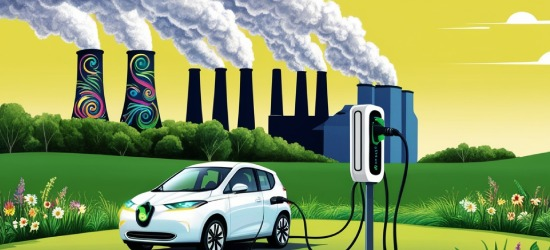Learning from international examples like Norway’s incentives and China’s renewable energy integration, India aims to optimize EV charging patterns and enhance grid infrastructure. Regional disparities in renewable energy use highlight the need for tailored strategies to maximize climate benefits. The role of startups, innovations in battery technology, and smart grid investments are essential to overcoming challenges and achieving sustainable mobility in India. Collaboration between policymakers, industry stakeholders, and consumers is crucial for realizing the full potential of EVs in curbing transportation emissions and fostering a greener future.
Electric vehicles (EVs) have emerged as a critical tool in the global fight against climate change, especially in the transportation sector, which is responsible for a significant portion of greenhouse gas (GHG) emissions. Globally, countries are transitioning to EVs to reduce their carbon footprints and fulfil international climate commitments, such as those outlined in the Paris Agreement.
India, as one of the largest and fastest-growing economies, plays a pivotal role in this transition. However, the country’s reliance on coal for electricity generation presents unique challenges in maximizing the climate benefits of EVs.
The evolution of India’s transportation sector
India’s transportation sector has undergone significant transformation over the past few decades. Historically dominated by petrol and diesel-powered vehicles, the sector has contributed substantially to air pollution and GHG emissions. Rapid urbanization, economic growth, and increasing vehicle ownership have exacerbated these issues, making the transition to cleaner transportation alternatives an urgent necessity.
India’s commitment to international climate agreements, particularly the Paris Agreement, has further propelled the shift towards sustainable transport solutions. The government has set ambitious targets, such as achieving 30% electric mobility by 2030, underlining the critical role of EVs in the country’s climate strategy.
Understanding the climate impact of EVs
India’s transportation sector contributes approximately 12% of the nation’s energy-related CO2 emissions, making it a significant target for emission reduction strategies. EVs are touted as a crucial solution, but their true climate impact depends on several factors, including energy efficiency and the carbon intensity of the electricity grid.
Read the full post on Indoen













